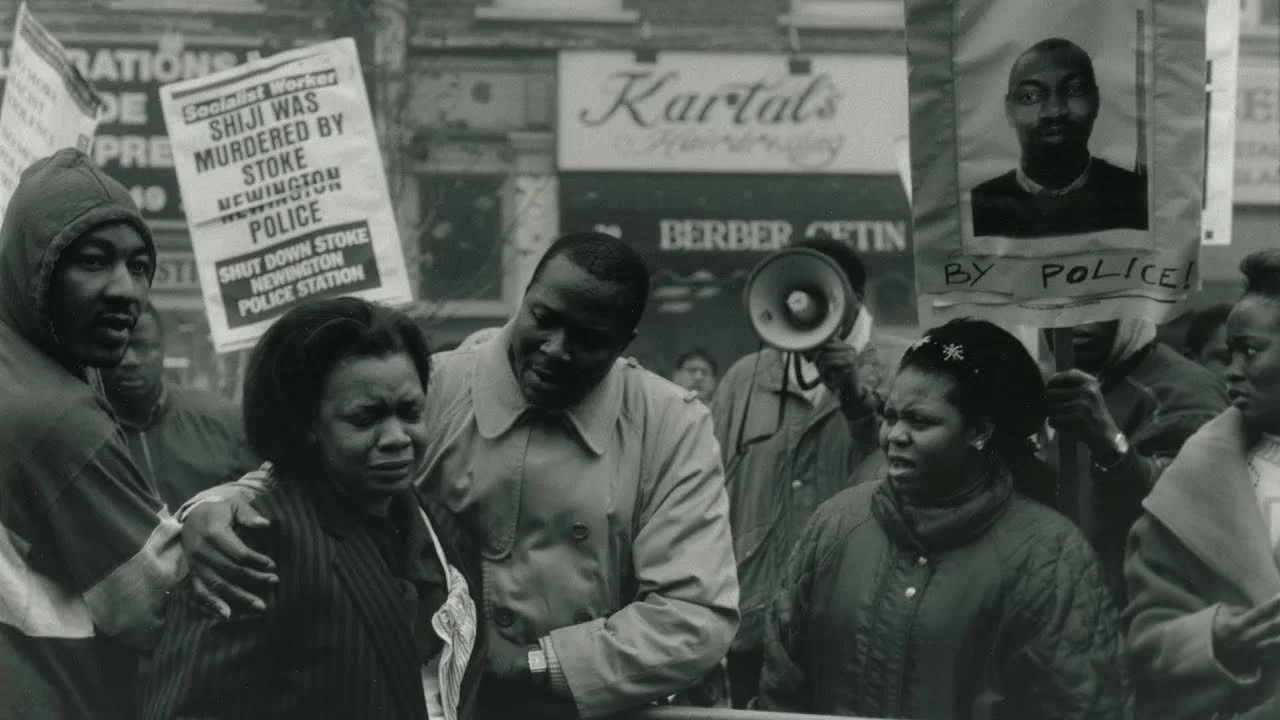Ultraviolence
With his latest documentary, Ken Fero returns to the contentious arena of death in police custody.
Ken Fero, a founding member of the political film collective Migrant Media, has stated that Ultraviolence is the second part of a planned film trilogy focusing on deaths in police custody in this country. This doubtless helps to explain why this successor to Injustice (2002) concentrates on instances that occurred between 1995 and 2006 without addressing later comparable deaths (we are, nevertheless, supplied with the statistic that over fifty years there have been some two thousand such incidents). In any case the fact that this film is reaching us now is surely linked to current concerns over police brutality both in America and in Britain. The six cases principally featured here are all of black victims and the sense of angry protest driving the film is absolutely in line with the powerful recent assertions that Black Lives Matter.
Fero is a political activist as well as being a filmmaker and Ultraviolence, a work based on his belief that memory needs to be spoken to be kept alive, is a polemic expressing outrage at the lack of justice and at the excuses and cover-ups that have resulted in only one policeman being found guilty (that was a manslaughter charge in 1985). In this study of six disturbing and horrifying cases (the most famous being the shooting of the Brazilian Jean Charles de Menezes in London in 2005 after he was misidentified as a terrorist), relatives speak direct to camera - there are particularly noteworthy contributions from the sisters of two of the victims, Janet Alder and Brenda Weinberg, whose dignity in these circumstances is remarkable.
If such footage follows standard documentary technique, other elements in Ultraviolence are more unexpected. There is, for example, an occasional neat use of animation to illustrate what is being described. Rather more significantly, Fero borrows ideas from other filmmakers. Thus, Fero himself is heard on the soundtrack addressing his son on behalf of the next generation whom he is inviting to ponder this history (the device echoes the narration in the Humphrey Jennings classic A Diary for Timothy). Furthermore, such emphatic touches as writing up slogans and quotes (often done in huge red or blue lettering covering the image on the screen) can be seen as drawing on the style of Jean-Luc Godard. The most memorable example is the appearance several times of the phrase ‘The Endless Campaign’.
While the power of the material (including CCTV footage) and its impassioned presentation have understandably impressed many, a few dissenting voices have been heard. I feel that they are quite wrong even if on occasion one would have welcomed more detail about the incidents that brought in the police before they led to fatal consequences. There is, nevertheless, one real misjudgment. As it happens I sympathise with Fero’s anti-war stance but, by bringing in references to the Iraq war and to the terrible suffering in Vietnam, he sets up an unconvincing supposed parallel between lives lost in wars and the deaths in custody which need no such wider context in order to resonate and distress. Despite being cluttered up in this way, Ultraviolence contains essential images to ram home concerns that should be important to all of us.
MANSEL STIMPSON
Featuring Janet Alder, Brenda Weinberg, Leslie Thomas, Patricia Coker, Amy Coker, Lucy Chadwick, Bernard Renwick, Victor Sylvester, Patricia De Silva Armani and with Cathy Tyson as narrator.
Dir Ken Fero, Pro Ken Fero, Screenplay Tariq Mehmood, Ph Kaoutaiba Al Janabi, Souleyman Garcia and Ken Fero, Ed Steve Morris, Animation Ryan Potter.
Migrant Media-BFI.
75 mins. UK. 2020. Rel: 5 July 2021. Released exclusively on BFI Player Subscription. No Cert.


